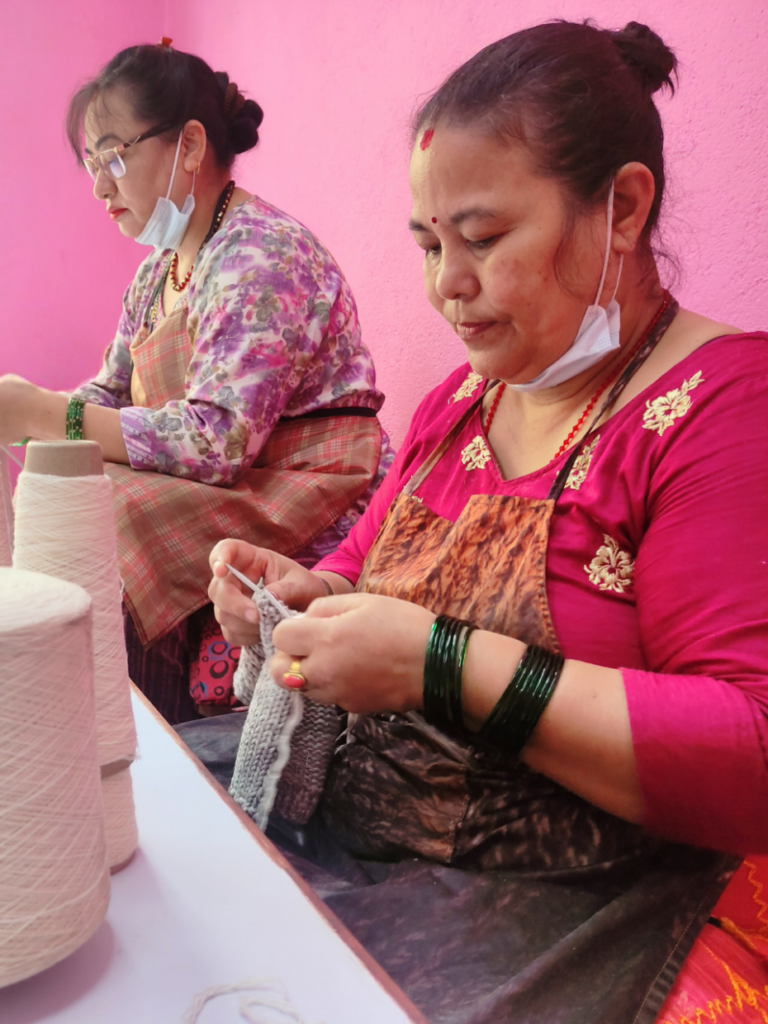In a world increasingly conscious of its environmental footprint and ethical standards, the fashion & Manufacturing industry stands at a pivotal crossroads. Among the numerous paths it could take, one stands out for its harmonious blend of tradition, sustainable, and ethical practices: HANDMADE KNITWEAR. Sustainable Ethical Handmade Knitwear manufacturing is not just about clothes; it’s about a story woven with care, respect for the environment, and a deep commitment to community well-being.
The Human Touch in Every Thread
At the heart of handmade knitwear lies the human touch – an element that mass-produced garments can never replicate. Artisans pour their skill, attention, and care into every stitch, creating not just a garment but a piece of art. This human connection does more than just add to the aesthetic value; it ensures a level of quality and durability that machines can’t match. For businesses looking to invest in knitwear manufacturing, this human element is key. It’s about offering products that are made with love, destined to last longer and thereby reduce waste.
Sustainability: More Than a Buzzword
Sustainability in knitwear manufacturing is multifaceted. It begins with the choice of materials. Natural fibers like wool, cashmere, and alpaca are not only renewable but also biodegradable, making them far superior to synthetic alternatives. These fibers are sourced responsibly, often supporting local farming communities and minimizing the carbon footprint typically associated with transportation.
The production process itself is inherently eco-friendly. Hand knitting doesn’t require the energy-intensive machinery used in conventional textile manufacturing. This significantly reduces energy consumption, making handmade knitwear a champion of low-impact manufacturing.
Ethical Manufacturing: Empowering Communities
Ethical considerations are paramount in the world of handmade knitwear. By choosing to manufacture hand-knitted products, businesses are directly contributing to the empowerment of artisans, often women, in communities where such opportunities are scarce. These artisans are not just employees; they are custodians of traditional skills, passing down centuries-old techniques from one generation to the next. By providing them with fair wages and respectful working conditions, businesses play a critical role in uplifting entire communities.
Furthermore, handmade knitwear manufacturing often involves small-scale operations, which allows for greater oversight and ensures that ethical standards are maintained. This level of care and respect is something that conscious B2B customers are increasingly seeking.
Customization: A Unique Selling Point
One of the most significant advantages of handmade knitwear is the ability to customize. Each piece can be tailored to specific needs and preferences, allowing for a level of individuality that mass-produced items can’t offer. This is particularly appealing in the B2B space, where businesses are looking for unique products that stand out in the market. From varying patterns, colors, and sizes to incorporating specific design elements, the possibilities are virtually endless.
Quality That Speaks Volumes
The quality of handmade knitwear is unmatched. The meticulous attention to detail ensures that each piece is not only beautiful but also sturdy and long-lasting. This longevity is a key aspect of sustainability, as it encourages a shift away from the disposable culture prevalent in the fashion industry. For B2B customers, investing in high-quality knitwear means investing in products that will maintain their appeal and integrity over time, offering better value for money.
The Story Behind Every Piece
Each handmade knitwear piece carries a story – of the hands that crafted it, the tradition it upholds, and the sustainable and ethical journey it embodies. This story is a powerful marketing tool for B2B customers. It’s not just about selling a product; it’s about offering a piece of heritage, a commitment to sustainability, and a testament to ethical business practices.
A Greener Future with Handmade Knitwear
The fashion industry’s future must be green, and handmade knitwear is a step in the right direction. By embracing these practices, businesses can not only reduce their environmental impact but also set new standards in ethical manufacturing. It’s a win-win: for the planet, for the artisans, and for the businesses that choose to walk this path.
How we reduce our impact on the planet to make it sustainable
- Yarns – Responsible
- Making
- Made to Order
- Zero Waste
What are the steps in Ethical Manufacturing
- No fixed term contract to bind the people
- Flexible work hours
- Fair Payment
- Good Working environment
Conclusion: A Commitment to Change
Embracing handmade knitwear is more than a business decision; it’s a commitment to a more sustainable and ethical future. It represents a return to the roots, where quality, craftsmanship, and community well-being are valued above all. For businesses in the B2B sector, this is an opportunity to be part of a meaningful change, one stitch at a time.
In this journey towards a greener and more ethical fashion industry, every choice matters. Handmade knitwear is not just a product; it’s a statement, a stand against the unsustainable and unethical practices that have long plagued the fashion world. It’s an invitation to be part of a movement that values people and the planet, where every stitch tells a story of hope, resilience, and a brighter future.
